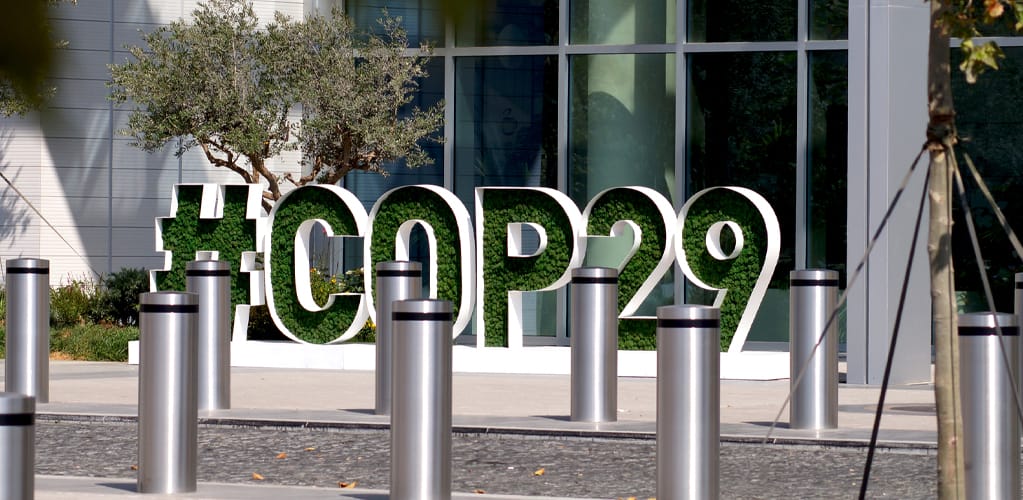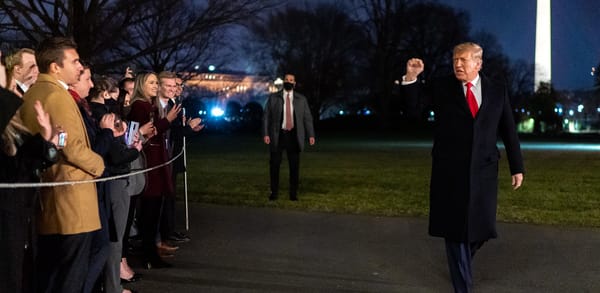Why Cop29 talks are focusing on finance
COP29, dubbed the “finance COP,” sees 198 nations convene in Azerbaijan to negotiate new climate finance goals. Controversy surrounds fossil-fuel dependency and private banks’ limited contributions to combating climate change.

by ROB SOUTAR —
Writer and editor specialising in climate and development.
At China Dialogue, he ran award-winning investigations into the mining industry.
TL;DR | Highlights from this story
● Cop29 prioritises a finance deal to support developing nations facing severe climate change impacts.
● Azerbaijan controversially hosts Cop29, raising concerns due to its fossil fuel reliance and civil rights issues.
● A new finance goal under the Paris Agreement is critical as the $100bn target proved insufficient.
● Debates involve increasing contributions from richer nations and private banks to fulfil escalating climate needs.
C op29, this year’s round of UN-organised climate talks, has been dubbed the “finance Cop”. Over the next two weeks, negotiators from 198 countries will descend on Azerbaijan to try to agree on a new finance package to help poorer countries deal with the climate crisis.
So why is money the main talking point? And with big banks continuing to fund fossil fuels, will a new deal be enough?
What is Cop29?
In UN jargon, “Cop” stands for conference of the parties. These “parties” are countries taking part in UN-organised talks to coordinate global action to tackle climate change. Negotiations begin on Monday in Baku, Azerbaijan. It will be the 29th round of annual high-level talks since countries first met in Berlin in 1995.
Why are talks in Azerbaijan?
They were meant to be in eastern Europe but Russia said it would block any EU member from hosting, so Azerbaijan became the agreed destination. It was a controversial choice given the country’s reliance on fossil fuels – especially coming after last year’s venue of UAE, another so-called “petrostate” – and the government’s attacks on civil liberties.
There is an argument for engaging with big fossil fuel producers in order to get them on board with the green transition. But with fossil fuel lobbyists increasingly present at Cop, there are major concerns that the whole negotiation process has been hijacked by the industry.
Why are these talks called the ‘finance Cop’?
The Paris Agreement, signed at the 2015 climate talks, was a landmark moment. It set the target of trying to limit global heating to 1.5C by the end of the century. To do this, countries must cut emissions of planet-warming gases and scale-up cleaner transport, electricity and industries.
But those changes require investment, as does international preparation for the worst impacts of climate change. All that is easier for richer countries, which are often less affected by climate change (yet more responsible for causing it). So they need to support developing countries.
The Paris Agreement set the deadline of this year for countries to agree on what they called a “new collective quantified goal” for climate finance – hence why this is being spoken of as the finance Cop.
What is ‘climate finance’ and who gets it?
Climate finance is money for projects or activities that help countries limit, and prepare for the effects of, climate change. It can come in many forms, such as grants (which don’t need to repaid) or loans (which do – usually with interest).
So poorer countries that might be losing land to rising sea levels, suffering droughts or floods, or whose energy systems are hooked on dirty sources of fuel, will be allocated money to tackle these problems based on their needs.
Climate finance shouldn’t be confused with supposedly “green” or “sustainable” finance, which tend to refer to financial products.
How much is needed?
The previous financial goal was set 15 years ago, when it was agreed that richer countries would stump up $100bn in climate finance every year until 2020 for developing nations. But they didn’t do it. We only hit that figure two years ago. And although $100bn sounds like a lot, experts now agree that the figure is nowhere near enough to deal with the urgency of the crisis.
No one is really sure what the new goal will be. But the UN reckons that developing countries will need around $1 trillion (10 times the previous figure) per year from 2025.
Who provides it?
The richest countries – which include the US, UK, other Western European countries, Canada, Australia and New Zealand – are obliged by the Paris Agreement to provide climate finance. There’s also some discussion about whether countries with big economies that call themselves developing (such as China) should contribute.
There are calls for the private sector to make more funds available for projects and activities that help countries cut emissions of planet-warming gases and achieve climate goals. So far, however, private banks’ contributions have also fallen way short. And there’s likely to be an elephant in the room in Azerbaijan: big banks’ continued finance for oil and gas, which threatens to lock in emissions for decades and worsen the climate crisis.
What next?
While experts have advised on the need to hit at least $6 trillion by 2030, we should find out in Baku exactly what the official target will be. It should also be decided when it will have to be met – along with a timeframe for scaling it up.
Beyond that, organisations will need to closely track the amount of climate finance that is raised if we’re to avoid missing targets like we did last time. And to make sure enough money gets to those that need it most.

GOING FURTHER
COP29 | AZERBAIJAN
UN Climate Change Conference Baku - November 2024 | UNFCCC






[Read our Comments Guidelines]